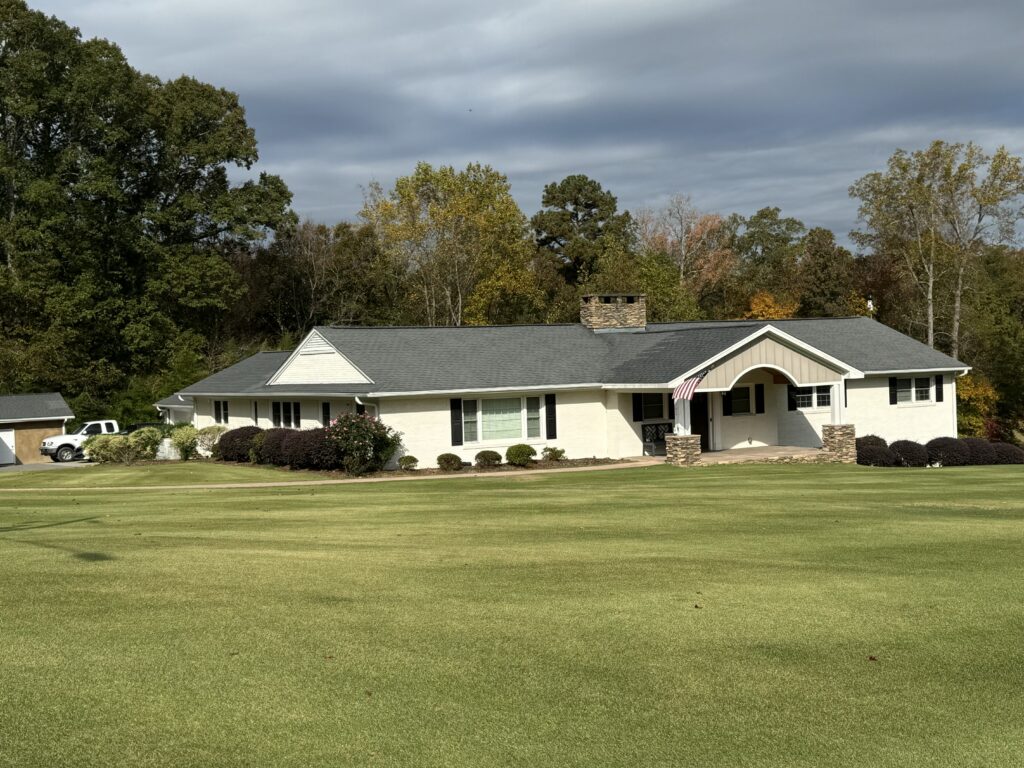A single-family home in North Carolina hosts over 30 active voter registrations for the state, allowing numerous suspicious ballots to be cast in local, state, and federal elections.
An independent analysis done by The Federalist, using the North Carolina State Board of Elections (NCSBE) voter search tool, found at least 32 registrations with statuses designated as “active” or “temporary” at 500 Westover Drive, Sanford, Lee County, North Carolina 27330, the location of Traveling Mailbox, a company that provides virtual mailing service, which is typically used for travelers.
“Temporary” status refers to active overseas voters covered by the Uniformed and Overseas Citizens Absentee Voting Act, which covers American citizens stationed overseas for diplomatic or military purposes.
The vast majority of voters registered at the address are either Democrats or unaffiliated. In 2020, former President Donald Trump carried Lee County with a total of 16,469 votes to Joe Biden’s 12,143 votes.
Speaking with The Federalist, Jim Womack, president of the North Carolina Election Integrity Team (NCEIT), said many of the voters registered at the address are suspected of unlawfully voting, and some may have zero connection to Lee County or even North Carolina.
Womack also told The Federalist that his NCEIT election data analysis group found even more active or temporary registrations tethered to the house, 41, and that eight have already voted absentee this year.
While the property itself is zoned residential, a commercial mail service called Traveling Mailbox, LLC, operates out of it. According to an analysis done by EagleAI NETwork, the owner of the building is Travis G. Poole, who is the president of Traveling Mailbox. The United States Postal Service’s Residential Delivery Indicator, according to the analysis, designates the address as “N,” meaning not residential, likely because a business operates from it.
“NCEIT analysts are scrutinizing all virtual addresses in the state. We are suspicious of all addresses declared not residential by the U.S. Postal Service. We investigate each such ballot cast, and we are prepared to challenge any of those ballots cast by someone who has not taken residency in that jurisdiction,” Womack said. “Traveling mailboxes like the one at 500 Westover Dr. in Sanford[,] North Carolina[,] are examples of virtual addresses from which suspicious ballots are being cast. Once we gather evidence to justify a challenge, we will file the appropriate paperwork to prevent corruption of our election.”

Registering to vote from a business is against North Carolina law, which requires that one register from a residence, defined by the law in this way: “That place shall be considered the residence of a person in which that person’s habitation is fixed, and to which, whenever that person is absent, that person has the intention of returning.”
In addition, Poole, responding on his company’s website to a question about the voter capabilities of Traveling Mailbox (“Can my Traveling Mailbox Address be used for Voting Purposes?”), said voters should not register from there.
“In general no. To claim residency and vote in a particular place simply by having an address is generally not accepted and we would advise against it,” Poole wrote. “However, you can use your Traveling Mailbox Address to receive your absentee ballots and then have them forwarded to another location.”
It is unclear if Traveling Mailbox is aware of the issue with numerous voter registrations at its address, and the business did not respond to a request for comment from The Federalist.
Womack said his organization has flagged this address to the proper election authorities but they have done nothing to address the issue. He said that the Lee County Board of Elections has deliberately ignored the concerns. Neither the Lee County Board of Elections nor the NCSBE responded to a request for comment from The Federalist.
According to North Carolina law, UOCAVA voters can register with their last known address in the state or their parents’ last known address in the state. “If that address is no longer a recognized residential address, the voter shall be assigned an address for voting purposes,” the law states.
However, even if North Carolina were using the Traveling Mailbox as an address to allow UOCAVA voters to cast ballots, it still would not explain the majority of voters registered to that address having an “active” designation rather than a “temporary” one for overseas voters.
As of Oct. 31, 205,141 voters in North Carolina returned absentee ballots by mail. Of those, only 5,784 are military, and 16,843 are otherwise overseas. Many overseas civilian voters, the group that consistently far outnumbers the military voters under UOCAVA, are Democrats.
As The Federalist reported, North Carolina allows for voters who “never resided” in either the state or even the United States to vote in its elections from overseas. While lawsuits have been filed to challenge North Carolina’s application of the UOCAVA law, which it has interpreted to include “never resided” voters, judges have thrown those cases out.
UOCAVA voters are also capable of voting in a number of different ways not available to regular voters, including absentee ballot portal, email, fax, or mail, and are explicitly exempt from voter identification laws, the NCSBE told The Federalist in a separate inquiry.
At least one of the voters registered to the Westover address reviewed by The Federalist returned a 2024 ballot by email.
For more election news and updates, visit electionbriefing.com.
Source link

